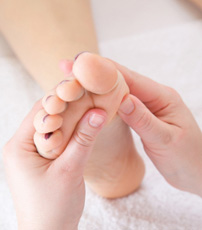There is no known cure for gout, but it can be alleviated through a variety of conventional therapies. Physicians often prescribe non-steroidal anti-inflammatory drugs (NSAIDs) such as ibuprofen to keep inflammation and pain under control. Corticosteriods can have a similar affect; these are administered via pills or injections. There are also medicines that can lower levels of uric acid, the best known is probably allopurinol (Zyloprim). All of these measures should be used only as a last resort, as all carry the risk of significant side effects.
 Like so many diseases, gout is likely an artifact of inflammation and habits of lifestyle, which means following an anti-inflammatory diet and making changes in lifestyle should be the first line of defense. The following should be emphasized:
Like so many diseases, gout is likely an artifact of inflammation and habits of lifestyle, which means following an anti-inflammatory diet and making changes in lifestyle should be the first line of defense. The following should be emphasized:What therapies does Dr. Weil recommend for gout?
- Avoid meats that are particularly rich sources of uric acid such as organ meats, sardines and anchovies. Physicians used to advise cutting back on purine-rich plant foods such as lentils, peas, beans, mushrooms, cauliflower and spinach; however, recent research has shown no correlation between eating such foods and incidence of gout attacks.
- Eliminate coffee and all other caffeine sources from the diet.
- Minimize alcohol consumption. Alcohol promotes dehydration and irritates the urinary tract.
- Drink the full complement of eight eight-ounce glasses of water daily to flush uric acid from the system and prevent urate crystal deposition.
- Eat tart cherries in all forms - fresh, or as cherry juice, or in the form of tart cherry extract. Laboratory findings at Michigan State University suggest that ingesting the equivalent of 20 tart cherries inhibits enzymes called cyclooxygenase-1 and -2, which are the targets of anti-inflammatory drugs.
- If you are overweight, lose the excess pounds.
- Take bromelain, a compound of digestive enzymes and other compounds extracted from pineapple stems.

0 comments:
Đăng nhận xét